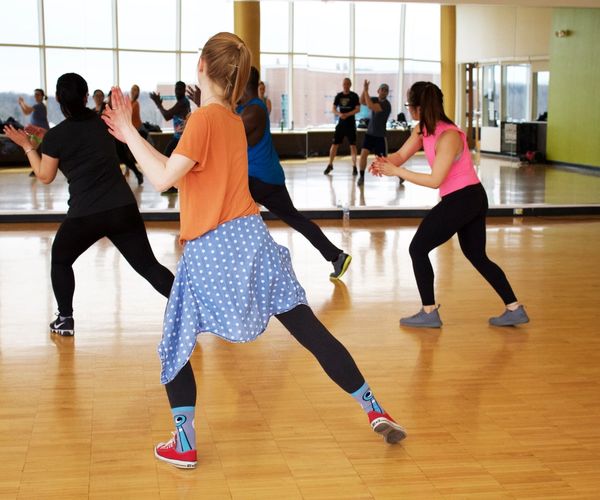
What's sweat rash?
If you’re hitting the gym more regularly, or doing anything that gets you sweatier more often, you may already have come across sweat rash.
What is it? Well, there’s a natural yeast on your skin called candida. If it mixes with the bacteria that live naturally on your skin, it can cause an inflammation known as skin rash.

What causes sweat rash?
It happens most easily when your sweat can’t evaporate easily.
So, in places where your skin can rub, like your armpits, the backs of your knees, between your legs, in the groin, and between and under the breasts.
A common cause is tight-fitting clothes rubbing against places where sweat is released. So, if you’re a gym bunny who lives in lycra, you can see why it could be a problem.
It can also be aggravated by prickly heat, changes in your skin or body care products, and synthetic fabrics that don’t let your skin breathe like natural fibres.
What does it feel like?
Your skin can become itchy and irritable with a red rash, a burning sensation, or may become broken.
Some people, with more sensitive skin, may react to the fragrances or perfume in some products. Or they may be allergic to other ingredients like alcohol and aluminium salts.


How to deal with sweat rash
You’ll be pleased to know, most types of sweat rash clear up naturally.
But if you’re one of those people who is sensitive to perfumes or fragrances, or has a history of eczema, then it’s a good idea to try a fragrance-free anti-perspirant or deodorant. You could also try using an emollient or moisturiser.
Making a few changes to your normal routine can help as well:
Wear looser-fitting clothes when you exercise
And choose natural fabrics like cotton and linen. They’ll help draw sweat away from your skin.
Take cool showers and baths when it’s hot
It’ll help ease any skin irritation.
Be wary of changing your skincare products
And if a new one starts to irritate your skin, stop using it.
Wear lightweight, natural clothing
If a sweat rash develops, try and avoid synthetic fibres altogether.
If you're concerned about a skin rash that doesn't seem to be clearing up speak to your doctor or other healthcare professional to get further advice.